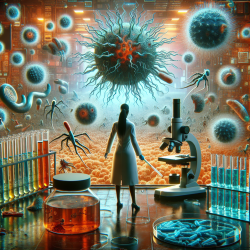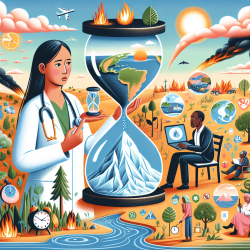The rise of antimicrobial resistance (AMR) poses a significant threat to global health, necessitating innovative solutions. Bacteriophage therapy, an approach that utilizes viruses to target and destroy bacteria, is gaining renewed interest as a potential strategy against antibiotic-resistant infections. This blog delves into the current clinical landscape of bacteriophage therapy and its global potential.
The Promise of Bacteriophage Therapy
Bacteriophages, or phages, are viruses that specifically infect bacteria. Discovered in the early 20th century, their therapeutic potential was overshadowed by the advent of antibiotics. However, with the increasing prevalence of AMR, phage therapy is being revisited as a viable alternative.
Phages offer unique advantages: they have a specific mechanism of action that targets only pathogenic bacteria while sparing beneficial microbiota. This specificity reduces the risk of side effects often associated with broad-spectrum antibiotics. Additionally, phages can be cost-effectively produced and are particularly beneficial in low- and middle-income countries where antibiotic access is limited.
Current Clinical Landscape
The resurgence of interest in phage therapy has led to an increase in clinical trials worldwide. These trials aim to standardize phage production and storage while exploring their efficacy against various bacterial infections. Notably, phage therapy has shown promise in treating chronic infections where traditional antibiotics fail.
- Clinical Trials: A growing number of trials are evaluating phage therapy's safety and efficacy across different infections, including skin infections, lung infections related to cystic fibrosis, urinary tract infections, and more.
- Compassionate Use: In cases where no other treatment options are available, phage therapy has been administered under compassionate use protocols with encouraging outcomes.
Challenges and Future Directions
Despite its potential, several challenges hinder the widespread adoption of phage therapy:
- Standardization: The lack of standardized protocols for phage production and administration remains a hurdle. Efforts are underway to develop consistent guidelines for clinical use.
- Regulatory Framework: Regulatory approval processes need adaptation to accommodate the unique nature of phage therapy.
- Resistance Development: Although less common than antibiotic resistance, bacteria can develop resistance to phages. Research into phage cocktails and combination therapies is ongoing to mitigate this issue.
The future of bacteriophage therapy lies in international collaboration and continued research. As more clinical data becomes available, the integration of phages into routine medical practice could revolutionize infection management.
To read the original research paper on this topic, please follow this link: Current Clinical Landscape and Global Potential of Bacteriophage Therapy.










